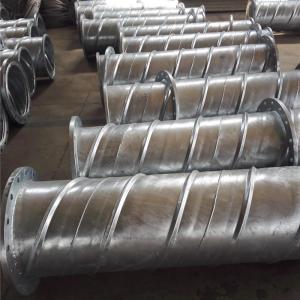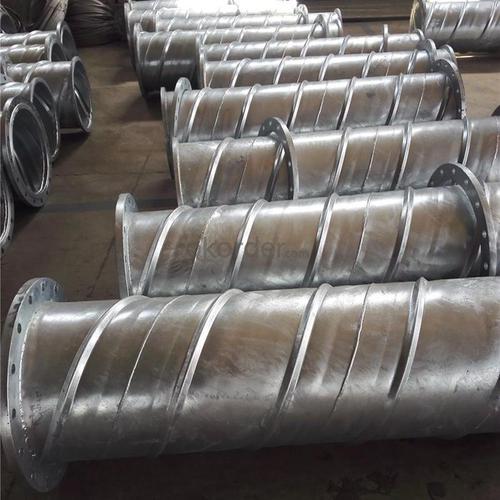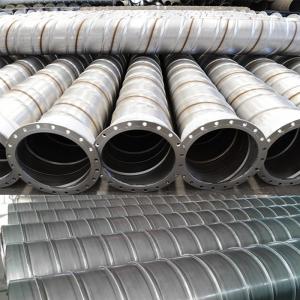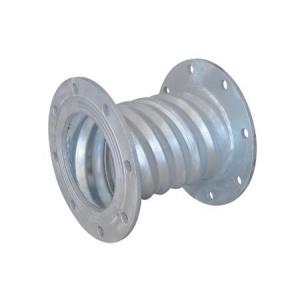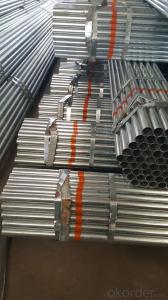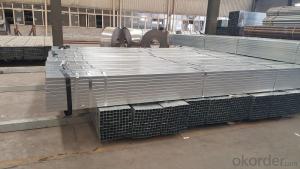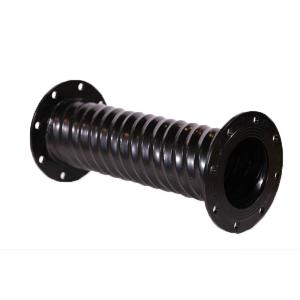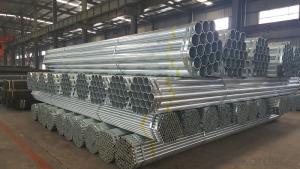Underground Rib Reinforced Spiral Welded Galvanized Steel Pipe for Mining
- Loading Port:
- China main port
- Payment Terms:
- TT or LC
- Min Order Qty:
- 100 m
- Supply Capability:
- 10000 m/month
OKorder Service Pledge
OKorder Financial Service
You Might Also Like
Underground Rib Reinforced Spiral Welded Stainless Steel Pipe for Mining
Press grade: Maximum PN -0.097MPa
Size: DN300MM-DN1000MM
Standards:

Features:

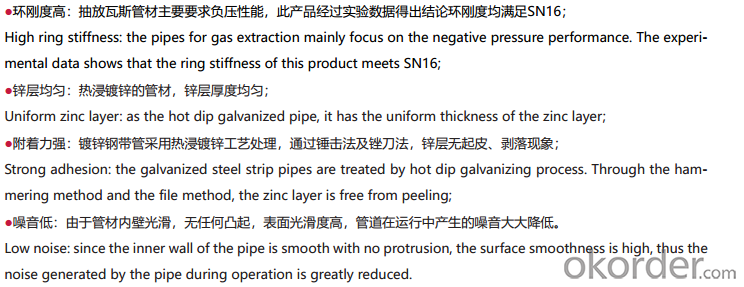
Specification:
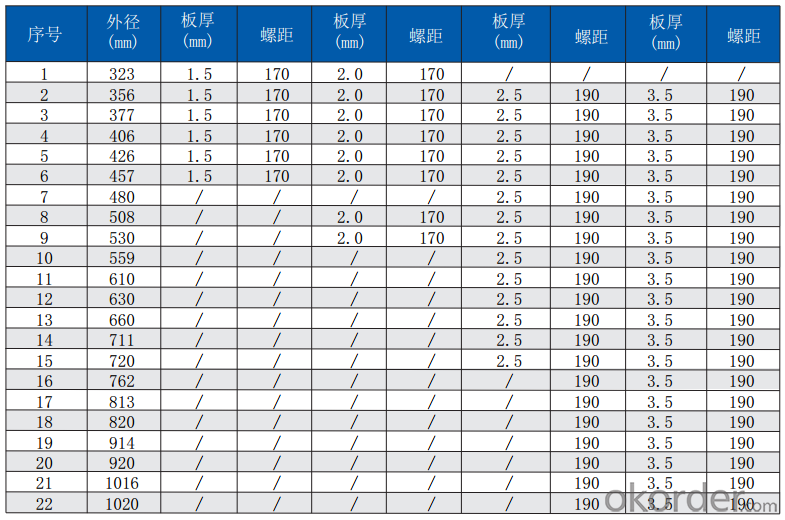
We own three industry bases for manufacturing pipes, fittings and new materials, including the biggest production line of steel wire reinforced PE composite pipe in the world, and top advanced PE pipe production line.
We get long term cooperation with leading material suppliers in the world and professionally provide the pipeline system solutions of matched products and technical cases by the whole industry chain from materials R&D to pipeline engineering installation.
- Q: Can steel pipes be threaded?
- Yes, steel pipes can be threaded. Threading is a common process used to create screw-like ridges on the ends of the steel pipes, allowing them to be easily connected to fittings or other pipes.
- Q: What are the different types of steel pipe coatings for underground applications?
- There are several types of steel pipe coatings used for underground applications, including fusion bonded epoxy (FBE) coating, three-layer polyethylene (3LPE) coating, three-layer polypropylene (3LPP) coating, and coal tar enamel (CTE) coating. Each of these coatings provides different levels of protection against corrosion and abrasion, ensuring the longevity and durability of the steel pipes in underground environments.
- Q: What are the advantages of using steel pipes in the manufacturing of storage tanks?
- There are several advantages of using steel pipes in the manufacturing of storage tanks. Firstly, steel pipes are highly durable and have a long lifespan, making them capable of withstanding high pressure and harsh environmental conditions. Secondly, steel pipes offer excellent resistance to corrosion, ensuring the integrity of the storage tank and preventing any leakage or contamination. Additionally, steel pipes are flexible and can be easily fabricated into various shapes and sizes, allowing for customization based on specific storage requirements. Lastly, steel pipes are cost-effective and readily available, making them a popular choice in the manufacturing industry.
- Q: Can steel pipes be used for transporting hazardous materials?
- Yes, steel pipes can be used for transporting hazardous materials. Steel is highly durable and can withstand the pressure and temperature requirements of hazardous material transportation. Additionally, steel pipes can provide a reliable barrier against leaks and spills, minimizing the risk of environmental contamination. However, it is essential to consider the specific properties and compatibility of the hazardous material being transported to ensure the steel pipes are suitable for the task.
- Q: What are the quality control measures for steel pipe manufacturing?
- Quality control measures for steel pipe manufacturing include various inspections and tests to ensure the pipes meet the required standards and specifications. Some common quality control measures include visual inspections for surface defects, dimensional checks to ensure accurate size and length, ultrasonic or magnetic particle testing for detecting internal or surface defects, hydrostatic testing to check for leaks or weaknesses, and chemical analysis to verify the composition of the steel. Additionally, adherence to proper manufacturing processes, documentation of procedures, and regular audits are also part of quality control measures in steel pipe manufacturing.
- Q: How are steel pipes used in the construction of railways and transportation systems?
- Steel pipes are used in the construction of railways and transportation systems primarily for their durability and strength. They are utilized for various purposes such as the fabrication of tracks, bridges, tunnels, and support structures. Steel pipes provide a reliable and long-lasting solution for the transportation industry, ensuring the safety and efficiency of railway systems.
- Q: Is there any difference between thermal expansion seamless steel pipe and seamless steel pipe?
- Seamless tubes are generally produced on continuous tube mills, also known as automatic rolling mills. The round steel is cut into the required length, centering on the end face of the pipe blank and then sent to the heating furnace to punch on the piercer. At the same time, the hole rotates and advances continuously. Under the action of the roller and the plug, the inner cavity of the pipe blank is gradually formed, and the cavity is called the capillary. Sent to the automatic tube rolling mill on rolling. Finally, the thickness of the whole machine is the same, and the diameter of the sizing machine is determined to meet the specifications.
- Q: What is ND steel pipe?
- ND steel also has the ability to resist chloride ion corrosion. ND steel pipe, the main reference indicators (70 degrees Celsius, 50%H2SO4 solution immersion 24 hours), and carbon steel, Japan imported similar steel, stainless steel corrosion resistance compared to higher than these steel grades. Products by domestic refineries and manufacturing units after the use of widely acclaimed, and achieved good results.
- Q: What are the different surface finishes available for steel pipes?
- There are several different surface finishes available for steel pipes, including mill finish, galvanized finish, painted finish, and polished finish.
- Q: What are the different types of steel pipes?
- There are several different types of steel pipes, including seamless pipes, welded pipes, galvanized pipes, and stainless steel pipes.
Send your message to us
Underground Rib Reinforced Spiral Welded Galvanized Steel Pipe for Mining
- Loading Port:
- China main port
- Payment Terms:
- TT or LC
- Min Order Qty:
- 100 m
- Supply Capability:
- 10000 m/month
OKorder Service Pledge
OKorder Financial Service
Similar products
Hot products
Hot Searches
Related keywords
